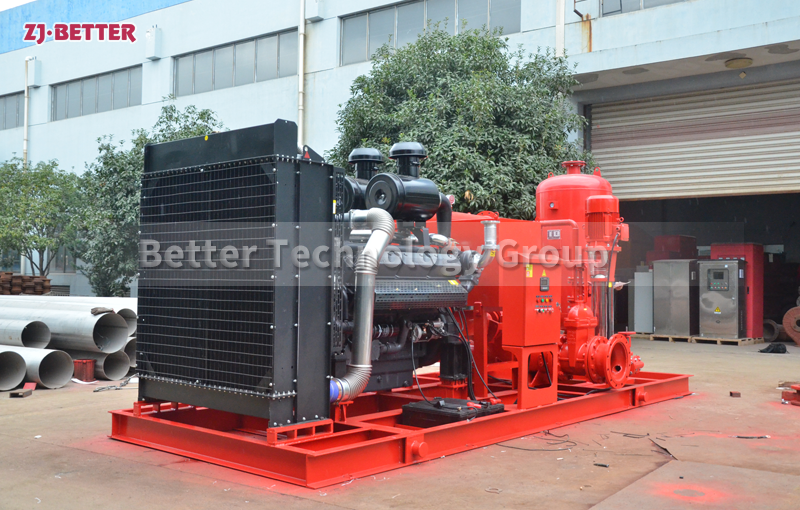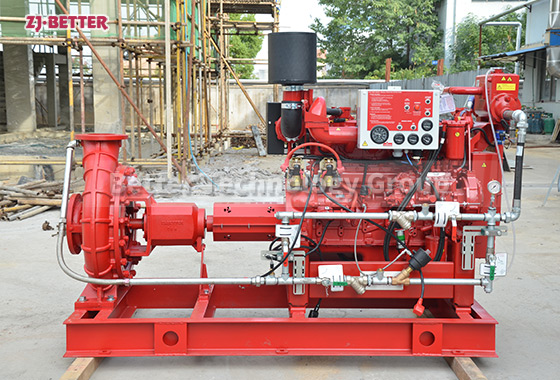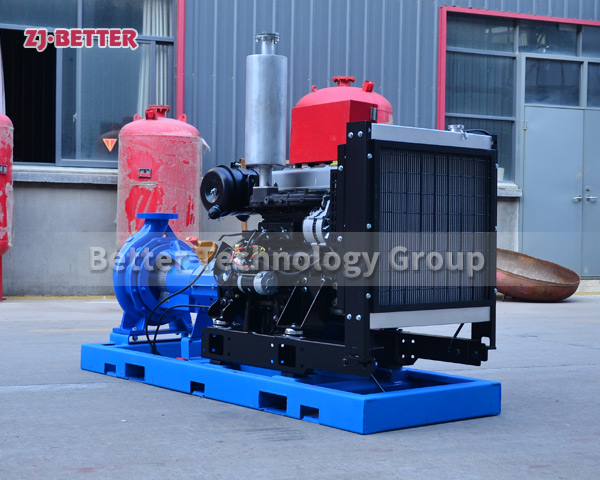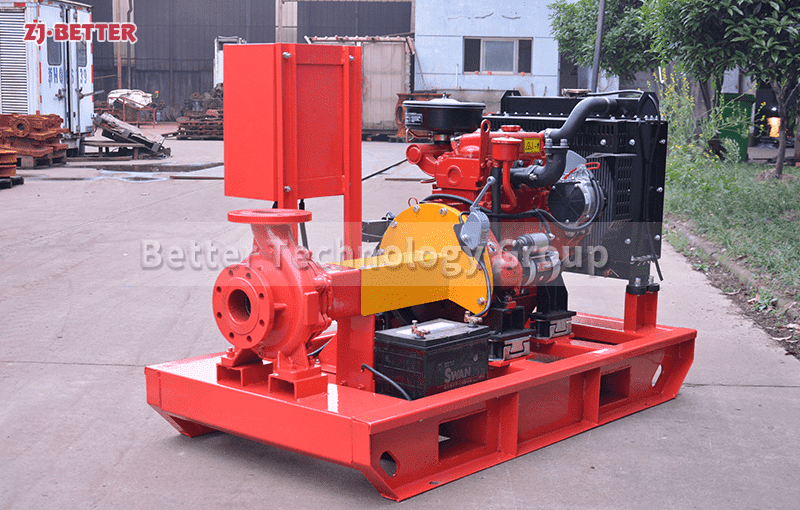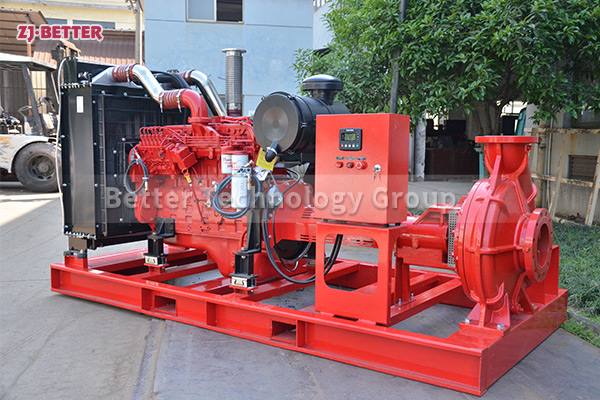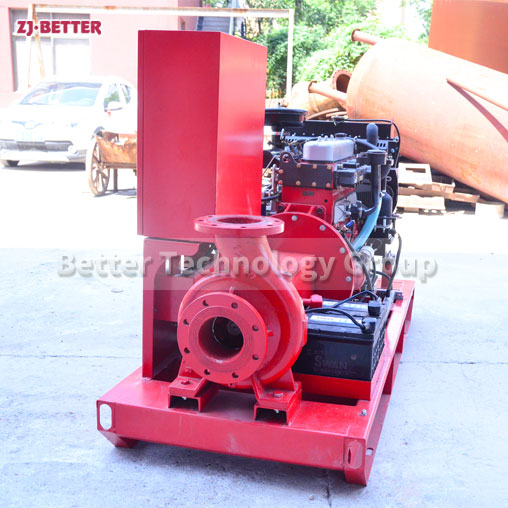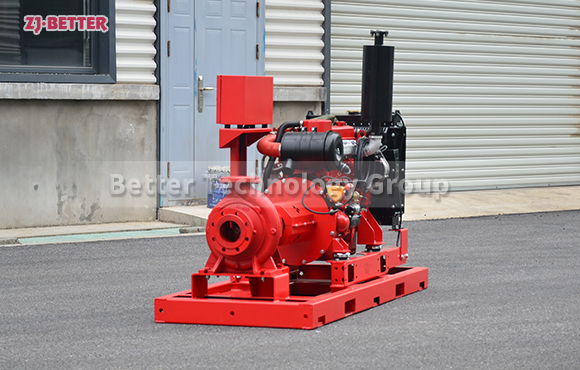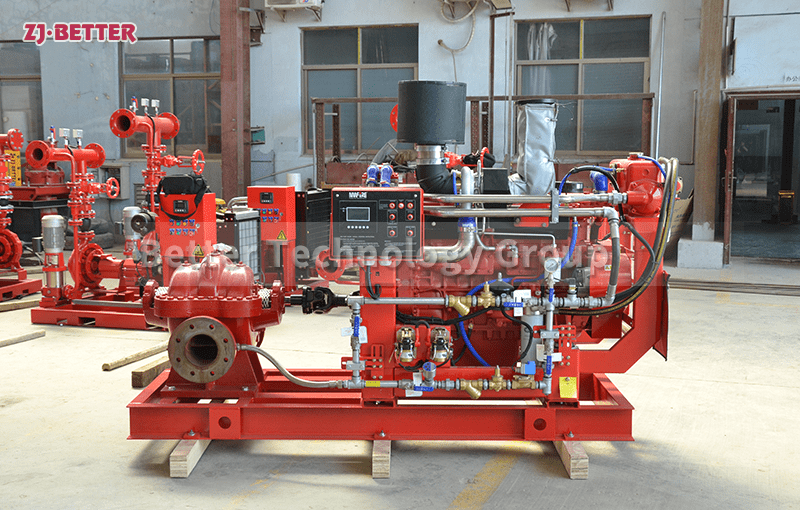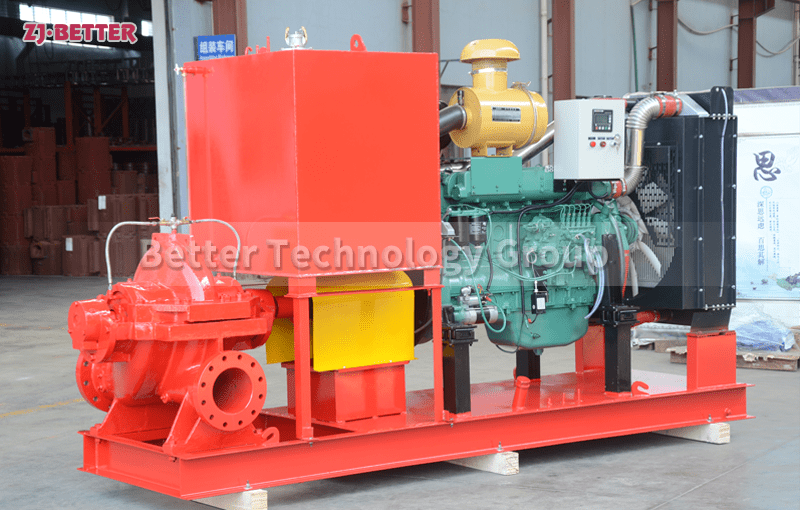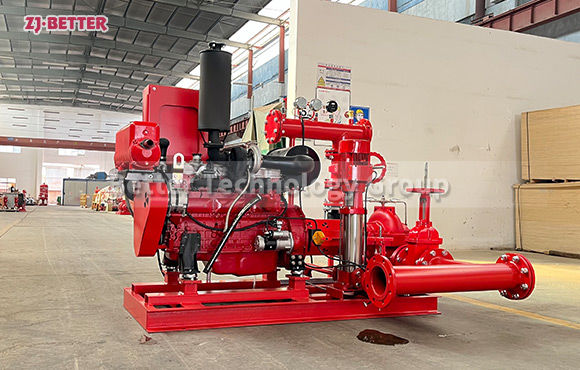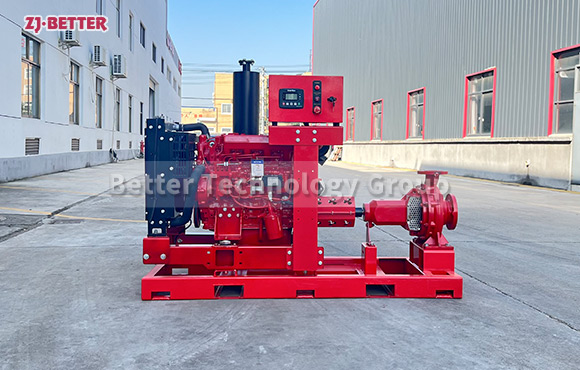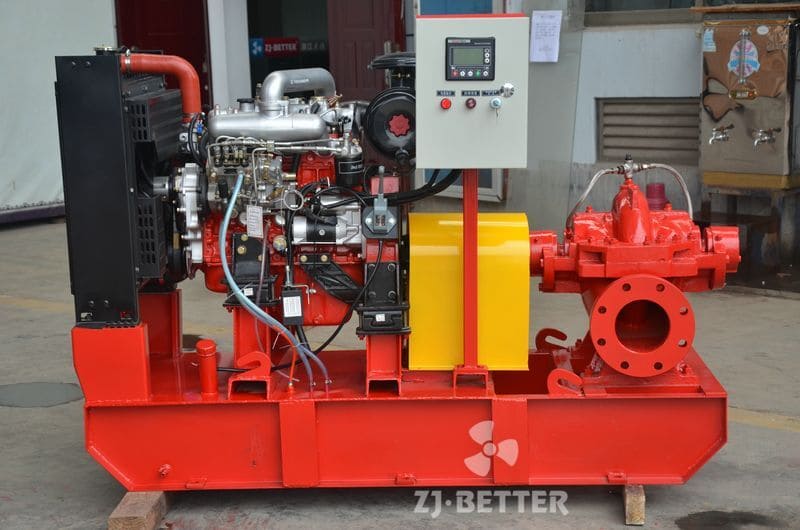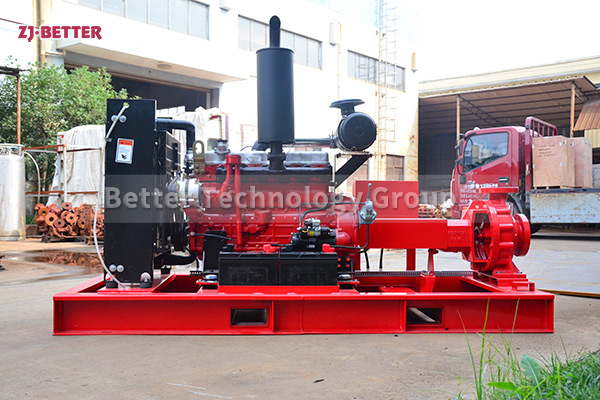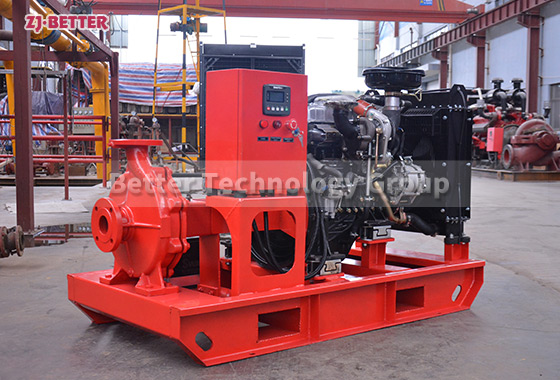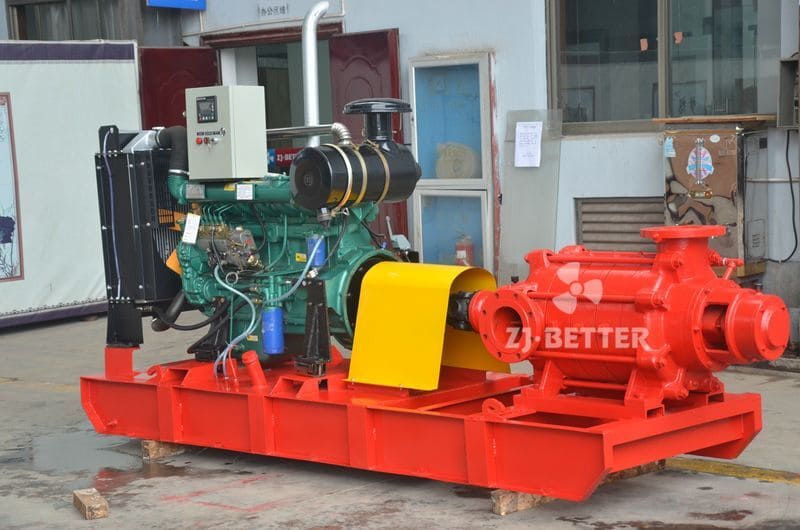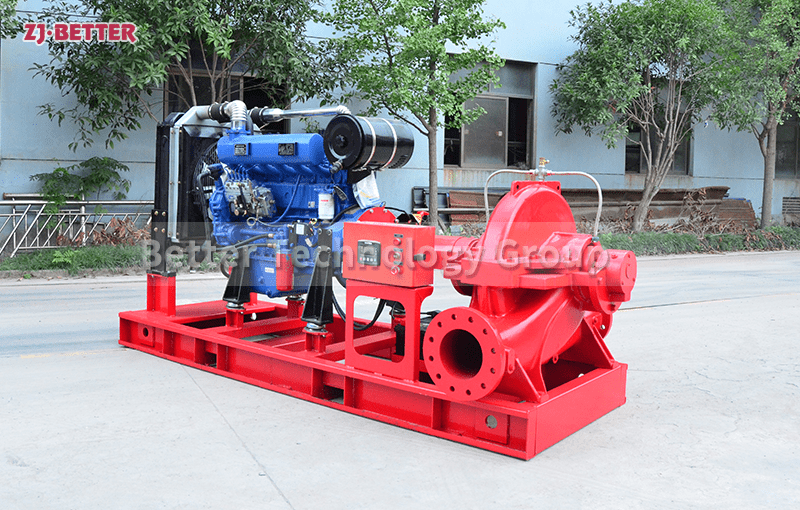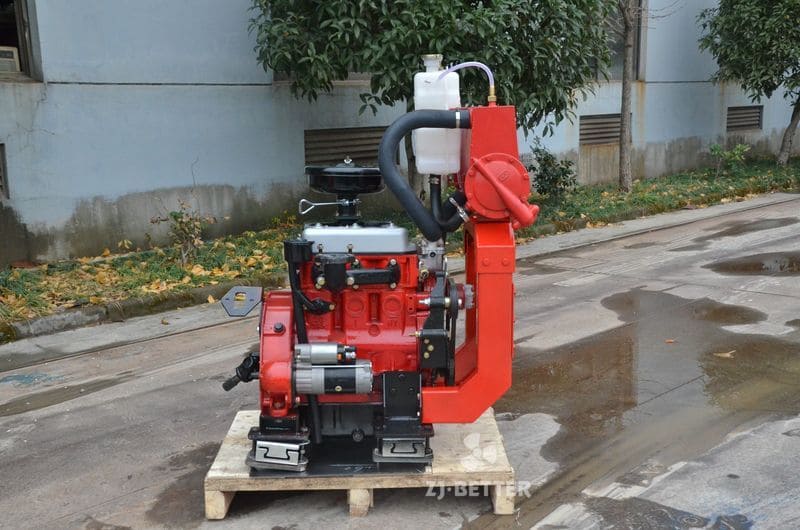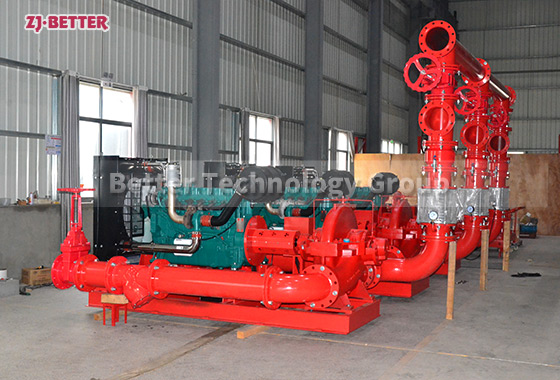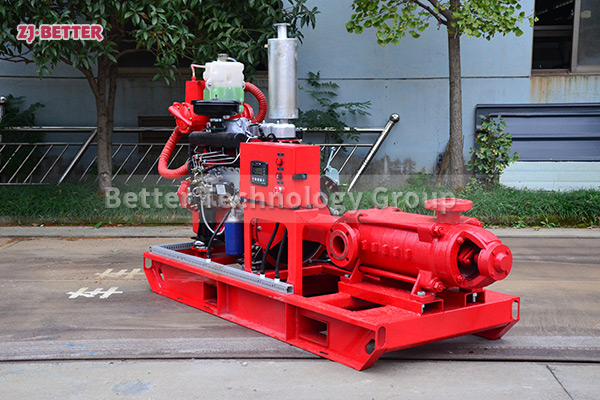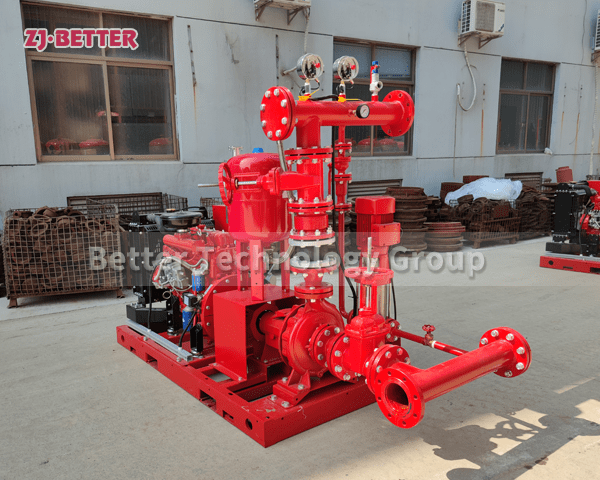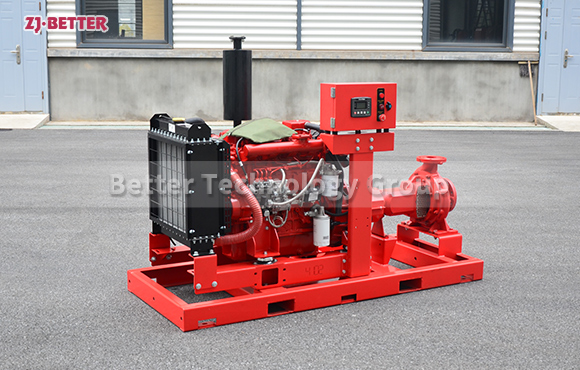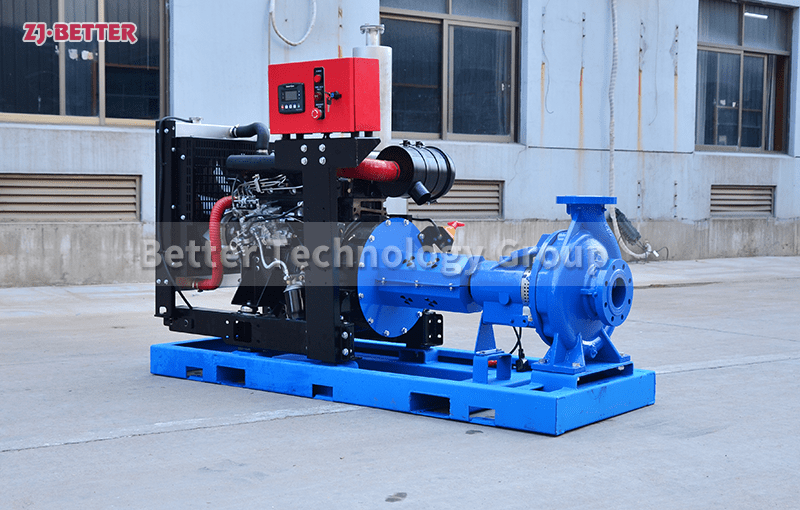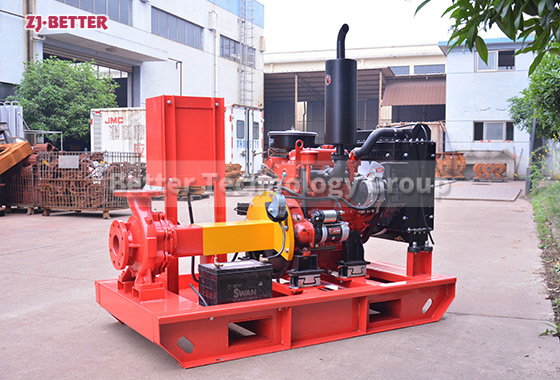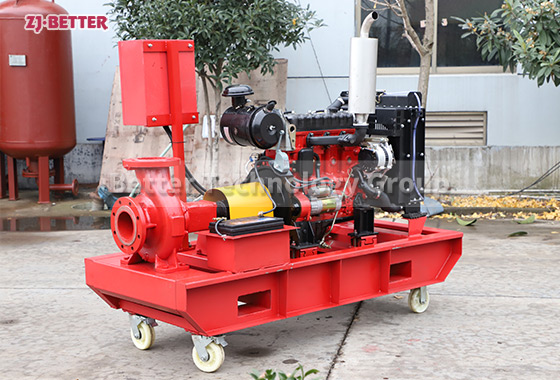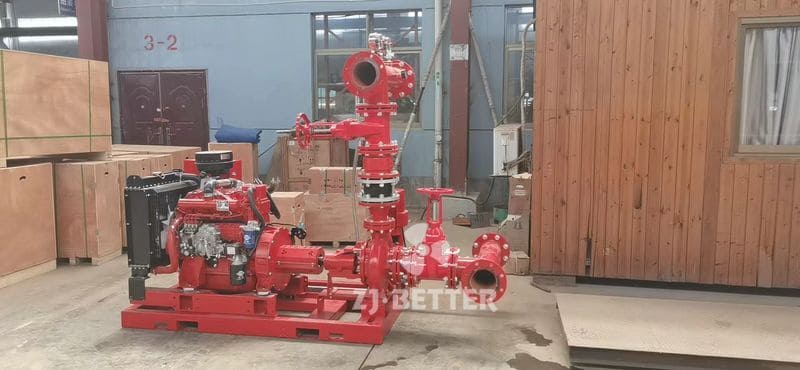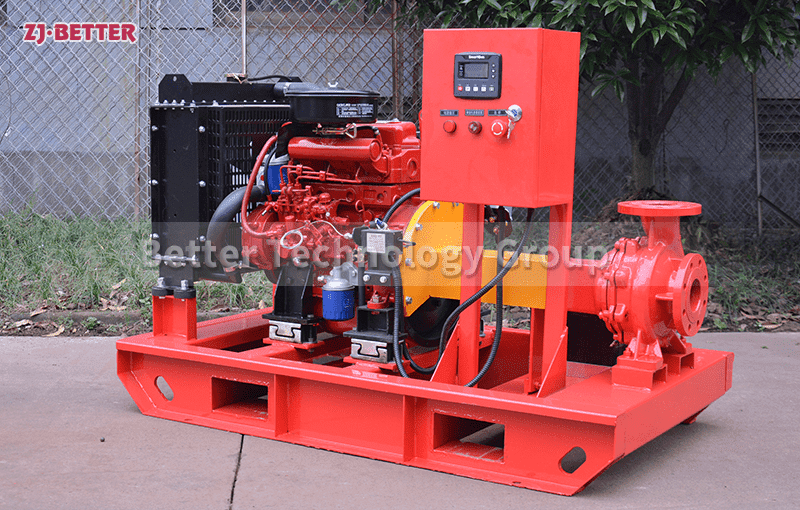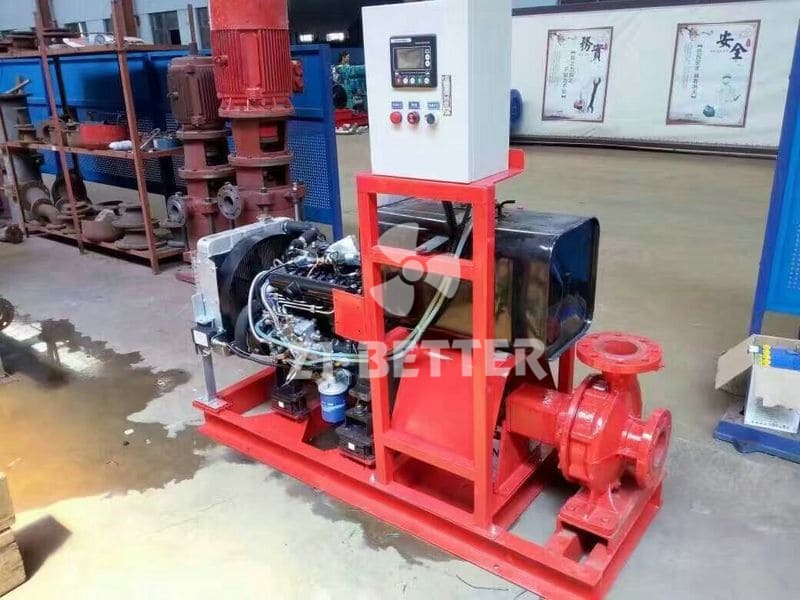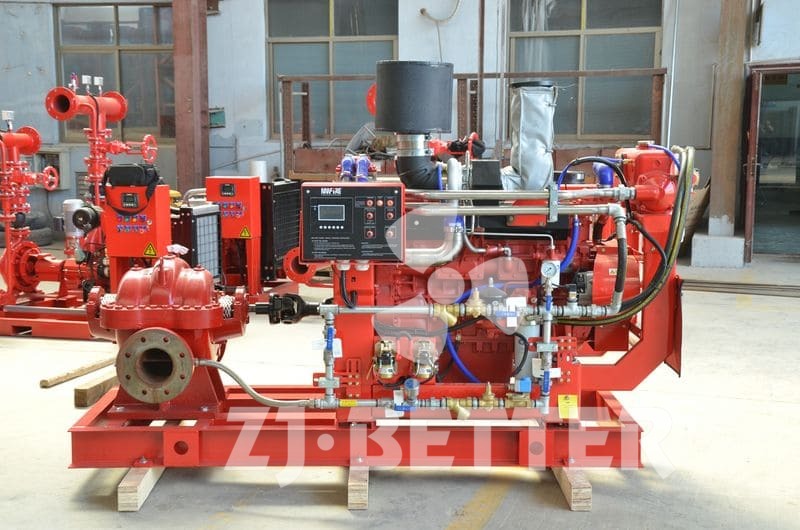Diesel engine fire pump set is a fixed fire extinguishing equipment
Diesel engine fire pump is more automatic. It is a water pump powered by diesel engine. It is very convenient to use, transfer and install in daily life, and it can be used in time when urgent water supply is needed in various occasions. There are more and more uses, choosing a diesel engine fire pump is a good choice.
The diesel fire pump set has good starting characteristics, strong overload capacity, compact structure, convenient maintenance, high degree of automation, reliable performance, and wide range of equipment pressure and flow. XBC type automatic diesel engine fire pump set, as a fixed fire extinguishing equipment, has been widely used in fire diversion, especially in fire water supply under unexpected circumstances such as no power supply or abnormal power supply (mains power).
The water pumps in the unit are horizontal single-stage and multi-stage fire-fighting special pumps produced by our company, and other diesel engines can also be configured as power machines according to user needs. It is mainly composed of diesel engine, fire pump, connection device, fuel tank, radiator, battery pack, intelligent automatic control panel, etc.

